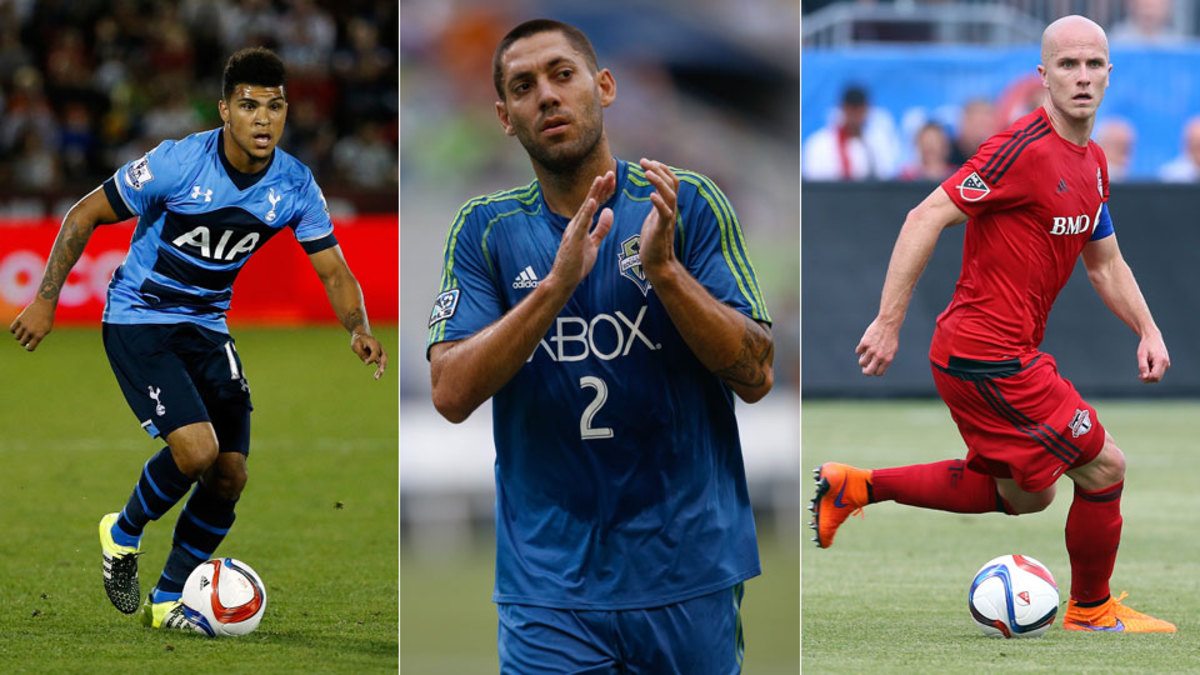U.S. youth clubs clarify stance to MLS Players Union amid payment lawsuit
A group of U.S. youth clubs suing the MLS Player Union and a number of its players, including Michael Bradley, Clint Dempsey and DeAndre Yedlin, has clarified its stance in a lengthy letter as the exchange of words between the sides continues over training compensation and solidarity payments.
The youth clubs filed a class-action lawsuit last Friday in hopes of recovering money they believe they are due according to FIFA Regulations on the Status and Transfer of Players (RSTP), according to Vice Sports. The MLS Players Union fired back Saturday with a strongly worded response, which included comments from active players Dan Kennedy and Ethan Finlay and executive director Bob Foose, essentially claiming the non-profit clubs are shaking down the institutions for cash and have ulterior motives.
The lawsuit is the climax of an issue that has been building for a while, and it stems from U.S. Soccer's reluctance to have leagues under its umbrella–MLS, NASL among them–pay out training compensation and solidarity payments along the lines of what leagues and clubs do all over the world. U.S. Soccer has long stood behind the decree in the 1998 Fraser vs. MLS decision, which it believes makes it exempt from the protocol followed by leagues around the world.
Articles 20 and 21 of the FIFA RSTP explain the training compensation and solidarity regulations. Training compensation is designed to reimburse clubs for the expense of training players who go on to be professionals, while solidarity rewards the effort and incentivizes further development. When a professional player developed by a youth club is transferred, portions of the transfer fees are then returned to those youth clubs where the player's career originated.
Dallas Texans club president Paul Stewart sent the following statement, obtained by SI.com, to the MLS Players Union on Wednesday in the latest interaction between the two sides:
"On behalf of the Dallas Texans, Crossfire Premier and Soccers FC, who have brought the suit against the MLSPU to resolve the antitrust issues the MLSPU has raised, we would like to clarify to our former players and to all American professional players that our actions are not intended to take money from them, and are not even primarily about training compensation. Our primary claims are for solidarity contributions, which will normally only be about 2-3% of the transfer fee under the FIFA system. Right now, the MLS is simply keeping this money (or the foreign professional club is keeping it when a player is transferred to the US).
"Regarding training compensation, we have proposed for years that a system be created in the US where the payment would come from the USSF to make sure that the players' compensation by the MLS or other pro teams would not be impacted, and to help the MLS and other pro leagues. However, we point out that by not paying training compensation, the MLS is getting a free ride on the backs of the non-MLS youth clubs, and eventually it should be strong enough to pay training compensation like the pro teams in all other major soccer countries, for the benefit of future generations of players.
"Regarding American players first signed by a foreign club, those clubs are being told that they don't have to pay training compensation because of US antitrust laws. We think that if the antitrust issue is removed, they will be fine with paying TC without impacting American players' compensation, like they do with players from almost every other country in the world. However, when necessary we would always reduce or waive TC if our former player needs that help to be signed by a foreign club.
We understand why the representatives of the MLSPU are trying to focus the players' attention on training compensation, because that is the biggest potential threat to the players if a professional team would in fact reduce a player's compensation because of TC obligations. But we want to emphasize that we, the youth clubs, are and always will be on the side of our former players and all players. The representatives of the MLSPU are responsible only to their union members, whereas we care deeply about our former players but we are also responsible for the development of youth players, your future teammates. In addition, the MLSPU is not thinking about its former members, many of whom come back to coach in the youth clubs. Solidarity contributions and TC payments would directly improve many MLS players' future career opportunities.
Finally, our current lawsuit is only intended to clarify the antitrust legal issues. Once the court clarifies those issues, or the MLSPU settles with us, all the parties can work together to figure out what system is best for American soccer. We believe the system should involve the MLS and/or the USSF putting more money into youth soccer by rewarding the clubs doing a good job in developing professional players and National Team members (male and female). But we will never be in favor of a system that takes money away from the players."





